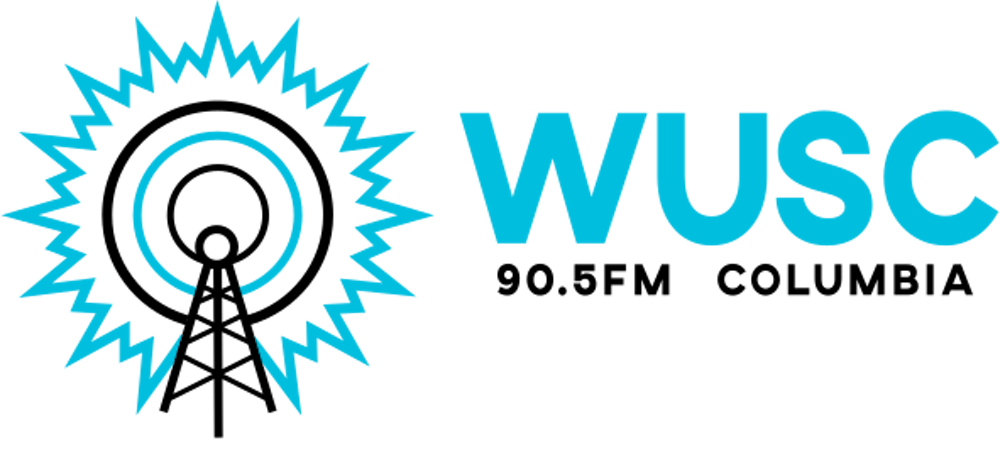If you didn’t already know, Wednesday, November 8th was the 60th Anniversary of Rick Wrigley’s first-ever radio show at WUSC. I had the honor of sitting in on the last few minutes of The Backbeat Show this Monday where he was highlighting the top 20 songs on the day of his first show in 1963. I was able to get lunch with Rick in Gamecock Park afterward where I got to ask him about what his first show was like, how radio has changed since he was a student here, and hear countless stories of his years in the broadcast entertainment business.
Rick grew up in Jacksonville, Florida, and grew up listening to some of the best iconic rock radio stations of that time, WAPE based out of Jacksonville, a 50,000 watt station that covered all the way from Virginia Beach, down to Daytona Beach, and WPDQ which covered a large area in Florida as well. Rick told me fondly that “I always thought being on air was cool.” But he never thought he would be able to. He began his freshman year at USC in 1963 initially studying Chemistry on a Naval ROTC scholarship. He lived in the old Honeycomb dorms, and happened to live down the hall from the station manager at the time. Once he found out about the station, he was immediately hooked. He did his training in one afternoon – a much simpler process than our training today – and the following Friday (November 8th) was Rick’s very first show as a baby DJ, “Dawn Patrol.” He laughed, saying “I think [the station manager] recruited me because he didn’t have anyone to fill that slot. Nobody wanted to do weekend nights.”
Rick joined WUSC when it was still a commercial station. His sponsor was Coca-Cola, and baby DJ’s were only allowed to talk at the beginning and the end of each hour. When WUSC was still a commercial station, they did not have the transmitter that we have now on top of Columbia Hall. The original transmitter was located inside of Bull Street Garage where the pay station is now. Their shows were distributed through power lines in the school and only had coverage to Five points. When Rick began, baby DJs had the overnight slots. However, they weren’t allowed inside Russell house overnight, so they would record their shows ahead of time and they would play overnight on a reel-to-reel tape. There were only 35-40 people in the station total, and Rick often would do 2-3 shows per week to fill empty slots. When I asked him “how did you have time to go to class?” he chuckled and said “I wasn’t going to have class before 8 AM, I learned better than that.” Rick’s first celebrity interview was with Johnny Mathis in 1964. He and his friend took an AMPEX 440 down to the Township Auditorium to record the interview.
Lily: How has the station changed the most since your first show 60 years ago?
Rick: The biggest change are the student DJs. You guys are so much more with it than my compatriots were back in the ‘60s. The stuff you’re doing, the engagement you have with the other DJs is head and shoulders beyond what I felt like we had. I do have some lifelong friends that I met back in those days. THe thing about WUSC back then, much more than it is now is that it was a training station for the commercial stations. 90% of the commercial jocks in Columbia in the ‘60s and ‘70s came through WUSC.
WUSC launched Rick’s career and fulfilled his dream of being in broadcasting. He remarked that “I was in broadcasting one way or another until the year 2000.” After school, Rick went on to work full time in radio. He worked at WCOS. he was hired initially to run the board for the Georgia Tech football games. He later became the all night host. In 1969, he moved from radio and went to work at WIS Television, and eventually worked at ETV as the director of computer services. From 1985-2000 he traveled all over the country helping run the Republican presidential debate shows.
Lily: How has new technology changed radio?
Rick: Being a DJ back in the day was a very physical experience. You had 45 RPM records. You would constantly queue up these records with a process known as slip queuing. You would take the turntable, put the record down on it and wait until you hear the first note, you would then put your finger down on the edge of the record with the turntable spinning underneath it, that’s why it’s called slip queuing, once it would be time for the record to start you would lift your hand and the music would begin.
Rick has been with WUSC for 60 years. In that time, he has seen broadcasting change dramatically, has had run-ins with Adrian Cronauer (the real life guy from Good Morning Vietnam) and Henry Kissinger. He has a wealth of knowledge, countless stories and is the kindest person to spend a lunch with. Thank you Rick, for your years with WUSC!

Hi y’all, I’m Lily! I’m a double major in Anthropology and Classics going into my junior year here at the South Carolina Honors College. I have been with WUSC since my freshman year & have loved every minute! Some of my favorite genres I listen to are folk and indie & my all-time favorite artist is Fleetwood Mac. I’m having a specialty folk show this semester! Tune in to hear all about the history of folk & listen to some jiggy tunes! I can’t wait to give y’all some cool content to read on the blog!

